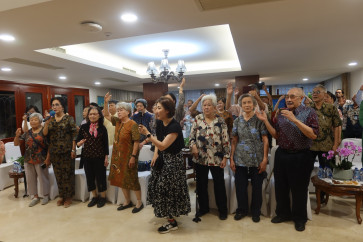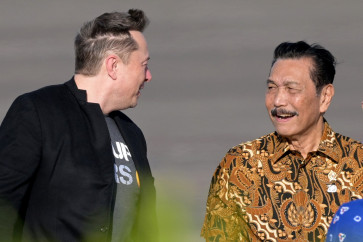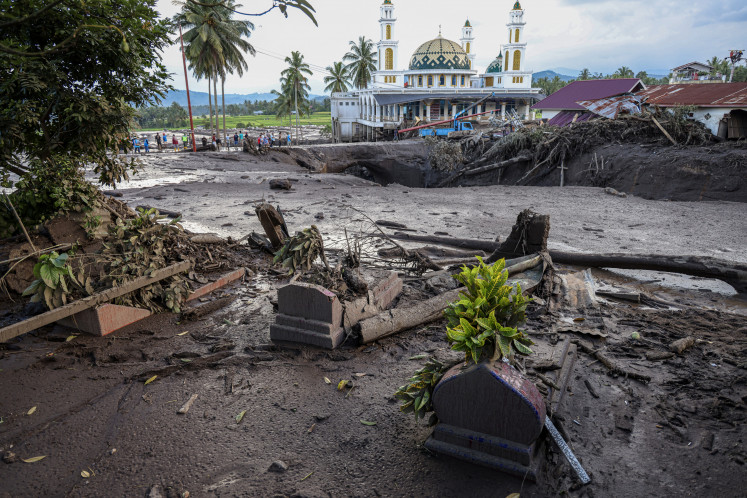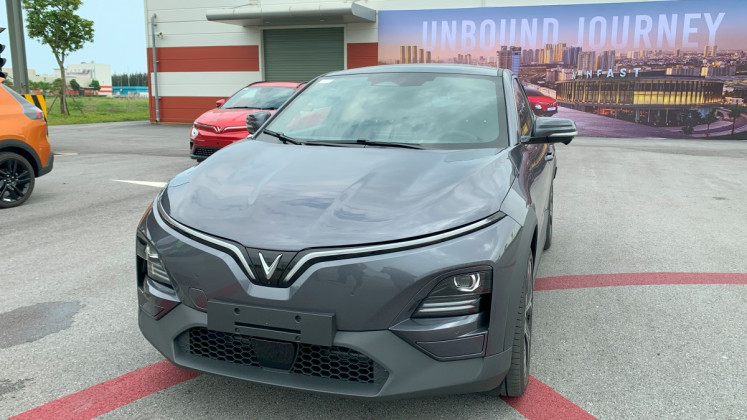Jokowi should learn from Soeharto’s fall from grace in May 1998
The same fate could befall Jokowi, even before he accepts the tempting appeal to hold on to power.
Change Size
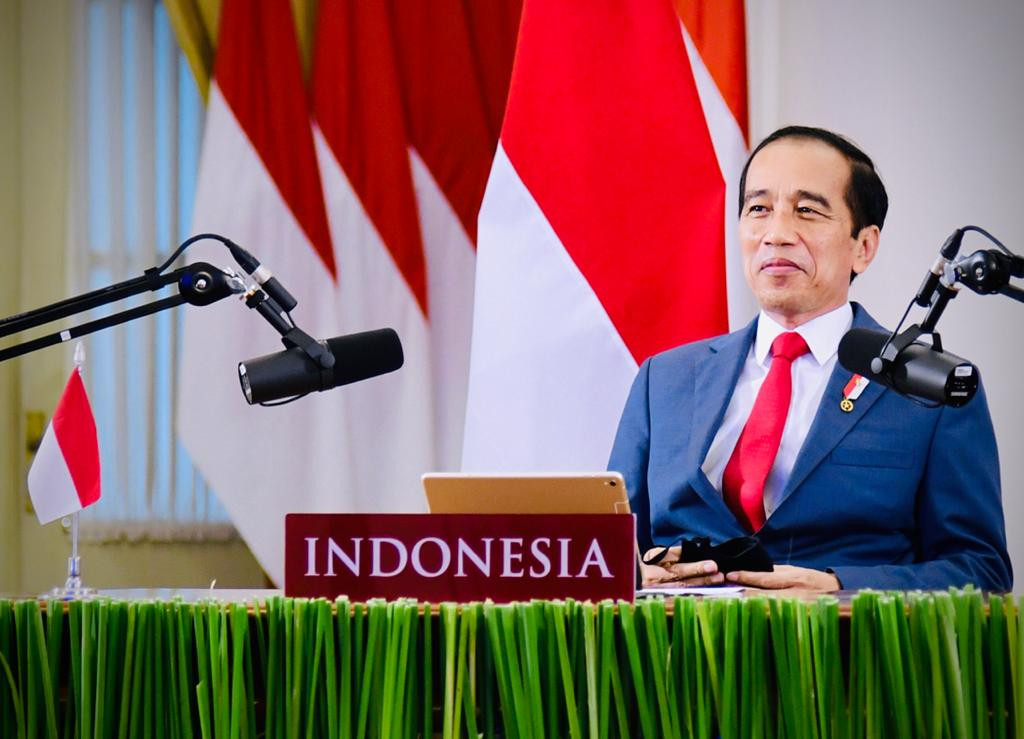
D
o any of you still remember the humiliating moment experienced by former president Soeharto when he met International Monetary Fund (IMF) boss Michel Camdessus 23 years ago? Or when he stepped down on May 21, 1998, just two months after his election for the seventh successive term?
Now that die-hard supporters of President Joko “Jokowi” Widodo are calling for their idol to continue leading the country for another five-year tenure through a Constitutional amendment, I warn the President against emulating Soeharto. The very same individuals who cheerfully applauded Soeharto’s reelection on March 11, 1998, came to his house a week later and told him he “should go”.
The same fate could befall Jokowi, even before he accepts the tempting appeal to hold on to power. He has repeatedly denied his intention to amend the Constitution in order to allow him to bid for a third term.
I remember when Camdessus arrived at Soeharto’s private residence in Menteng, Central Jakarta, on Jan. 15, 1998, the then-president directly ushered his French guest to the living room. A moment later, Soeharto sat in front of a table and was ready to sign the Letter of Intent as part of the IMF’s US$43 billion bailout package for Indonesia.
Camdessus was standing and staring at Soeharto with both his arms folded when Soeharto signed the LoI to implement a 50-point economic reform package, including the abolition of the monopoly of clove trade controlled by his youngest son Hutomo “Tommy” Mandala Putra. According to the IMF, ”the sale and transport of cloves, across district and provincial boundaries were completely freed. Buyers, traders and factories are now free to buy, sell and transport cloves at unrestricted prices.”
A picture of Soeharto signing the LoI under the close watch of Camdessus appeared on the front page of all national newspapers, including The Jakarta Post, and quickly provoked nationwide anger — as if the pride of the nation was severely hurt.
As a journalist, I witnessed the historic event at that time, but I did not feel the sentiments of this offended nation. For me, the LoI signing was just an ordinary business affair. Soeharto was required to ink the LoI because as a borrower, his government had refused to take the “economic remedy” prescribed by the IMF. Soeharto seemed to strongly believe Indonesia was just experiencing a case of severe influenza that did not need hospitalization but suspected the IMF was attempting to keep the country in the intensive care unit.
Indonesia’s economy collapsed partly because of the Asian financial crisis but mostly due to Soeharto’s reluctance to control his six children and cronies from the very beginning. It was extremely ridiculous that not only were his children and grandson were involved in megaprojects but also monopolized the trade of orange, clove, beer and liquor, state television TVRI’s monthly subscription fees, fertilizer and even the taxi industry.
The IMF clearly targeted the business empires of Soeharto’s children, grandchildren and cronies. At the same time, students and prodemocracy activists intensified pressure through street rallies — but the military protected Soeharto.
On March 11, 1998, the People’s Consultative Assembly (MPR) unanimously elected Soeharto president for the seventh straight term. Then-MPR and House of Representatives speaker Harmoko highly praised Soeharto, dubbing him the father of development. Soeharto appointed his eldest daughter Siti “Tutut” Hardiyanti Rukmana and his beloved crony and golf buddy Mohammad “Bob” Hasan his Cabinet ministers. Just one week later, however, Harmoko told Soeharto to step down because it was the only way to save the nation. Most of his Cabinet ministers also deserted Soeharto.
On May 21, Soeharto stepped down following nationwide riots and amid the country’s ailing economy. His vice president, B.J. Habibie, took over and later signed the last LoI with the IMF.
Indonesia still had to deal with the IMF until 2006 when it paid all of its debts to the international lender. But I often wonder why many Indonesians were so suspicious about the IMF. Some figures like former ministers Kwik Kian Gie and Rizal Ramli claimed, falsely, that they had been very strict with the IMF.
I am not defending the IMF or speaking on its behalf, but I just could not understand why many Indonesians were angrier at the IMF than at Soeharto, even until today.
Every year on May 20, the nation commemorates National Awakening Day in remembrance of Boedi Oetomo, the first movement that evoked the fight for the independence of Indonesia in 1908. The reform movement that led to an end to Soeharto’s 32-year dictatorship was later dubbed the second awakening of the nation, but many seemed to have forgotten this.
From a failed state, Indonesia managed to pass the bitter test after the reformasi (reform) In 1999 when just a year after Soeharto stepped down, Indonesia held its first democratic election. It was followed by four other general elections, including direct presidential elections, which ran in a generally fair manner.
National Awakening Day serves as a reminder that the nation should not let another autocrat like Soeharto lead Indonesia again. The amended Constitution clearly limits presidential terms to two periods. This limitation also applies to governors, mayors and regents – except for Yogyakarta special region.
With more than 270 million people, it is impossible for Indonesia to not find a leader who will replace Jokowi in 2024. It is enough that we made mistakes by allowing Soeharto and Sukarno to cling to power for so long.
I will not belittle the political move to push Jokowi to lead the country for another term. You may laugh at me now, but if that happens, history will repeat itself. I hope that we were not so lazy and stupid to not learn from our past blunders.
***
Senior editor at The Jakarta Post

